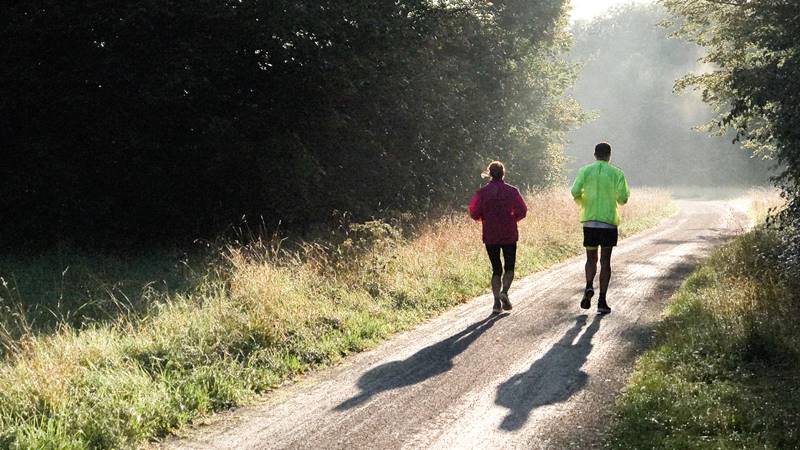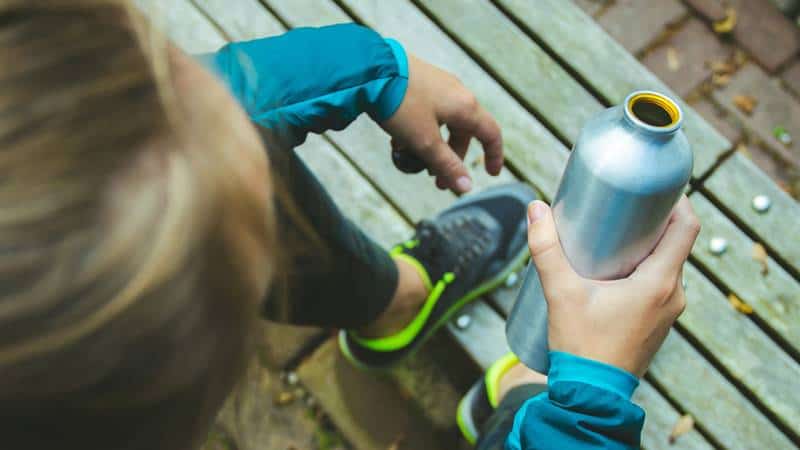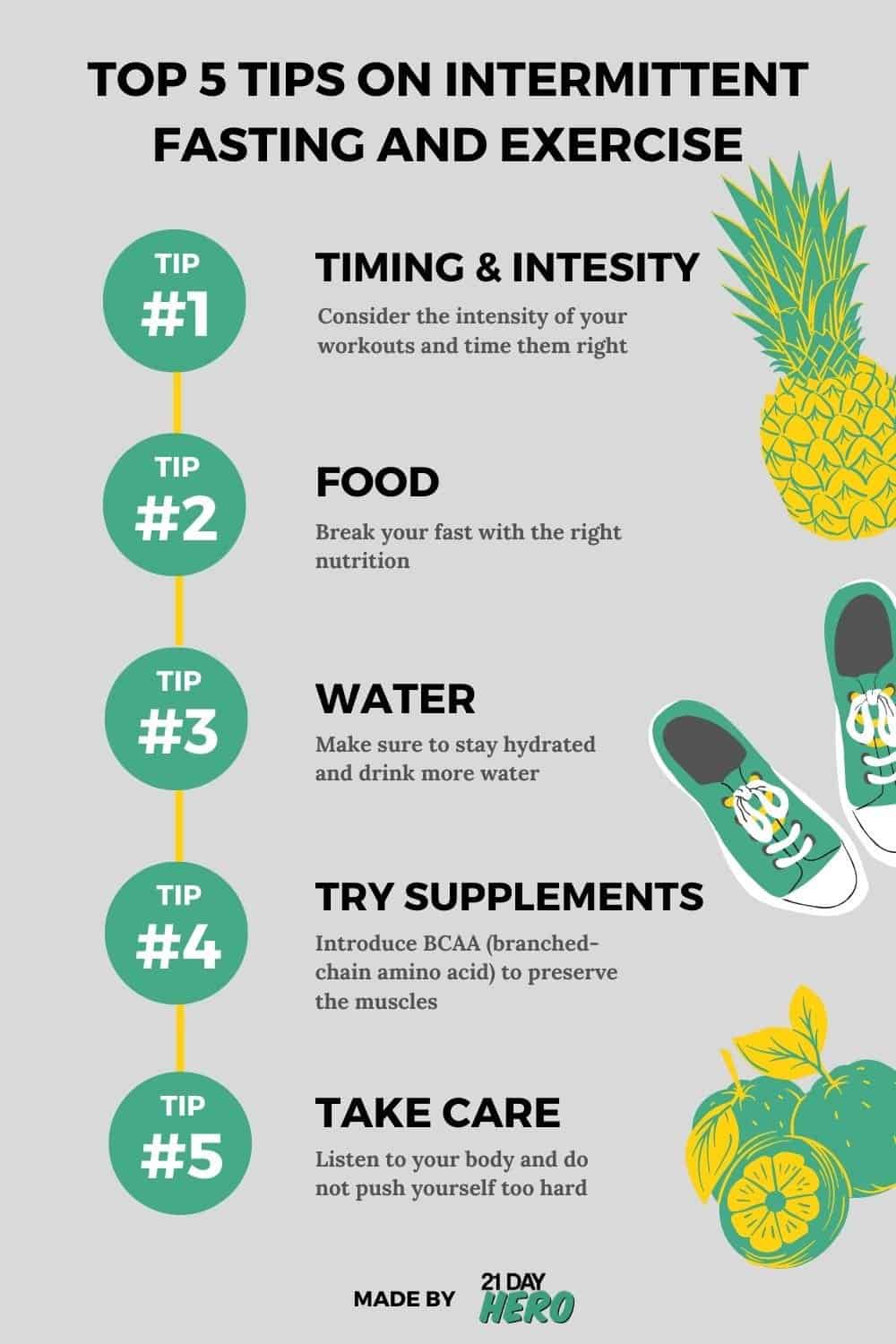can you exercise while fasting | best time to exercise | top 5 tips
Intermittent fasting is a pattern of eating and fasting intermittently. It helps you lose fat, improves your metabolism, makes you more energetic, and ensures you stay healthy and fit. But I bet you already knew that.
While all these intermittent fasting results sound pleasant and pretty straightforward, there’s one nagging question that pops up while taking up intermittent fasting – how to master the art of working out while fasting?
If you find stuck when it comes to exercising and finding the best timing for it – keep reading.
In this guide, we will explore all the aspects related to intermittent fasting and working out, such as:
Can you (and should you) exercise while intermittent fasting?How to time exercise with intermittent fasting?When is the best time to workout?How to best combine intermittent fasting and working out in the morning?Our top tips to start intermittent fasting and working out.
Ready to learn more? Let’s get started.
Can you exercise while Intermittent Fasting?
If you are curious to know whether you can workout while fasting – the short answer is yes. You can exercise while following intermittent fasting.
The longer and more detailed answer is that you need to take care of various factors like your age, fitness goals, overall health, lifestyle, and nutrition to achieve the desired results.
Let us help you to understand this better with the help of an easy example.
If you are an athlete, you will want to avoid working out while fasting. This is because if you work out a lot, your body needs a lot of energy to fuel itself, which might be more difficult (yet not impossible) to achieve with intermittent fasting.
As it goes – when you workout, you put a lot of stress on your physical and metabolic system. Thus, to support your workouts, it is necessary to consume the required amount of calories to fuel it properly.
The bottom line? While lighter workouts to keep you fit and toned can easily be combined with intermittent fasting, you should think twice if you are considering taking up professional fitness.

How to best time exercise while Intermittent Fasting?
Deciding when and how to time your workouts is one of the first things you should consider, as it might play a significant part in your success and results.
What is the best time to workout when following Intermittent fasting?
Exercising at the end of your fasting period would be ideal.
Not only will it help you pass those last hours of fasting when you are eager to get some food more comfortably, but it will also help you to maximize your weight-loss potential.
What about Intermittent Fasting and working out in the morning?
But what if working out just before breaking the fast doesn’t fit your schedule? Could you workout in the morning when you still have 4-5 hours left until you can break your fasting window?
Undoubtedly, it is going to be tough to exercise on a fasted stomach and still go a few hours without any food. But believe us, it’s possible, and you can get used to it. We’ve seen this over and over again with our 21-Day Intermittent Fasting Challenge takers who chose to combine intermittent fasting and working out in the morning.
To ensure a smooth transition into working out with this pattern, you should keep it easy for the first few weeks. Once you feel your body is getting habitual, you can push more with your workouts.
An important thing to keep in mind while combining intermittent fasting and working out is to drink a lot of water, ideally about one-half to one gallon of water. If you sweat a lot, you could also try adding an electrolyte tablet, particularly if you are combining intermittent fasting with working out in the morning, while you are still fasting.

Top 5 tips on combining Intermittent Fasting and working out

If you want to recover your muscles and promote growth, it is recommended to consume the right mix of carbs and protein within an hour of working out. If this is too cumbersome, you could also make a smoothie consisting of yogurt, whole fruit, nut butter, and spinach. See some of our best protein smoothie recipes here.
#1. Consider the intensity of your workouts and time them right
The way you should workout while fasting very much depends on the intensity of your workouts and your overall goal. Your needs as a bodybuilder would very much differ from someone’s who’s working out to lose weight or stay in shape.
Intermittent Fasting and bodybuilding / intense strength workout
If you are into intermittent fasting and bodybuilding, and often lift weights, sprint, do Crossfit and other high-intensity exercises, working out at the end of fasting window won’t work for you. Instead of becoming stronger and faster, you will end up becoming weaker and slower with reduced performance.
This phenomenon can be explained by the following:
When you are in a fasted state, your body starts burning stored glycogen and glucose to release energy before burning fat.When you are in a fed state, your body will use carbohydrates to generate energy.
So, when you perform strength training during a fasted state, you might lose some muscle mass due to an increase in protein breakdown and a lack of nutrients to fuel protein synthesis. And if your protein intake is too low and muscle protein breakdown is high, you will lose muscles faster than you will build them.
Hence, if you are serious about building up more muscle mass, working out during the fasting window will make it more challenging to achieve the desired results. To better understand the impact of intermittent fasting and working out results, you should hit the gym towards the end of your eating window. So, if you eat from noon to 8 pm each day – it is recommended to hit the gym from 5-7 pm rather than working out in the morning or working out at night after a meal.
Physicians like Dr. Niket Sonpal advise that workout should be kept within the eating window to allow your body to work on peak nutrition levels and not feel exhausted. You also need to feed your body well with protein-rich food or protein supplements such as a good quality protein powder.
Intermittent Fasting and less intense exercise
However, if your primary goal with exercise is to stay fit, toned, and accelerate your weight loss and you are not much concerned about muscle loss, endurance training on an empty stomach can provide optimum results. A study by the University of Illinois has shown that endurance training, along with a fasting schedule, helped participants in losing weight.
Similarly, cardio, when done during the fasting window, could also help burn more fat though studies are a little inconclusive on this aspect.
Just don’t forget to fuel your body after the workout (once you are allowed to break your fasting window) with a high-protein meal to help it recover from the damage during a workout.
#2. Break your fast with the right nutrition
So, what should you consume to break your fast after exercising? Since you are having fewer meals, you should make sure to have a nutrient-rich one. Stick to unprocessed whole foods such as whole grains, vegetables, lean meats, and nuts and seeds.
As you know, proper nutrition is key to reaching the best results. If you find it confusing to know what and when to eat, try out one of our 3-week Intermittent Fasting Meal plans designed to fit your unique needs.
For instance, if today is a strength training day, make sure you get enough carbohydrates that help you so that you don’t feel exhausted and tired.Similarly, if you do a high-intensity cardio workout, you should focus on a diet lower in carbs and higher in proteins.
Another thing you should consider is incorporating nutrient supplements to help balance any loss of muscle mass or slow down metabolism. Protein powders, for instance, are perfect for helping you build muscles even while intermittent fasting.
Yet, you should ONLY consume protein powders during your feeding window.
#3. Stay hydrated
To make intermittent fasting and working out in the morning work, it is essential to stay hydrated. Feel free to drink as much water as you want – it does not break your fast. Anything that does not have any calories is safe to drink in your fasting window.
If you are curious to learn what you can (and cannot) drink while fasting, see our detailed guide here.
#4. Introduce BCAA to preserve the muscles
If you are serious about preserving your muscles, branched-chain amino acid supplements, also known as BCAA, is something you should consider. Note that balanced diet is essential too – without actual proteins (the other 6 essential amino acids at least) to synthesize, your body cannot start building muscle proteins.
Taking BCAA before your workout will help you replenish the energy, help ease the fatigue, and prevent the breakdown of proteins and muscles that a fasted state might lead to. All while enjoying the benefits of enhanced anabolic response.
Given BCAA does technically break your fast, you should not consume it during your fasting window.
However, if you work out fasted in the morning and want to boost your muscle growth, consuming BCAA could be worth the sacrifice. Leangains, for example, recommend taking 10g BCAA 5 to 15 min before your exercise session and do not count in them toward your feeding window. So it’s worth a try if you’re struggling with muscle growth. Click here for the best BCAA for post fasting.
#5. Do not push yourself too hard
Remember to take a break when you feel dizzy or lightheaded when working out. Most important here is to learn to listen to your body.
The level of intensity of your workouts will very much depend on your fasting cycle.
If you are fasting for an entire day and then planning to take high-intensity cardio for an hour, which you are not used to – it is going to be more harmful than helpful. Instead, stick to low-intensity workouts like yoga, Pilates, or walking.
If you follow the 16:8 fasting cycle, the best time to perform more intense workouts would be during your eating window. Whenever possible, try to time your workouts and intensity considering your intermittent fasting schedule.
How to successfully start with Intermittent Fasting?
I love working out fasted each and every morning if I can! A fasted workout is amazing for fat burning, and weight loss. Also I seem to have more energy when I workout in a fasted state. Once I get back from my workout, I will eat a meal with protein, healthy fats, and salt to replenish my electrolytes.
All set? Kick start your intermittent fasting and working out regime now with our 21-day Intermittent Fasting Challenge that has helped hundreds of people successfully lose and sustain (!) their dream weight.
Best part? The challenge comes with a customized meal plan to ensure you know exactly what and when to eat!